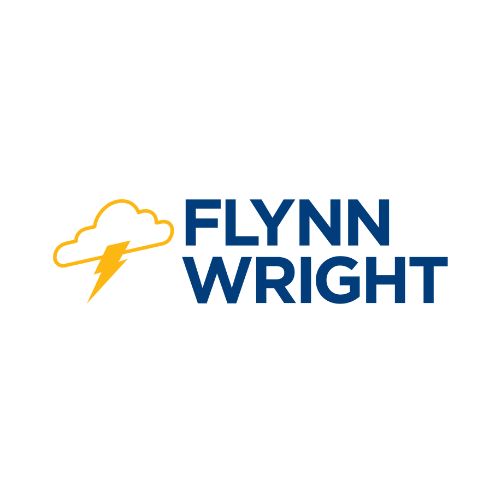Child care, broadband expansion among top priorities of Governor’s Economic Recovery Advisory Board

MICHAEL CRUMB Feb 8, 2021 | 8:16 pm
4 min read time
1,013 wordsAll Latest News, Economic Development, Government Policy and Law, Statewide NewsSolving the state’s child care crisis was the unanimous No. 1 priority listed in recommendations released in a report last week by the Governor’s Economic Recovery Advisory Board.
The advisory board was created last summer to address issues facing the state in its recovery from the coronavirus pandemic. The task force first met in late June and was given 100 days to pull together recommendations that Gov. Kim Reynolds could use to build her legislative agenda in 2021. Working groups were created addressing issues surrounding economic growth, education, connectivity, agriculture, government, public health and health care, and expanding Iowa’s workforce.
More than 350 volunteers participated in those working groups. The full advisory board met seven times through early October, when its recommendations were finalized and it began to draft its final report to Reynolds.
The report was made public on Feb. 4.
 Ben McLean, the board’s chairman, said the issue of child care quickly became a priority across all the working groups, which were composed of a diverse group of residents and business people from different political backgrounds.
Ben McLean, the board’s chairman, said the issue of child care quickly became a priority across all the working groups, which were composed of a diverse group of residents and business people from different political backgrounds.“The urgency of the child care issue, that was a No. 1 through all of our ranking processes, so I think that underscored the urgency and importance that was felt there,” said McLean, CEO of Ruan Transportation Management Systems.
Another was expansion of the state’s broadband infrastructure, he said.
“Broadband just again and again received the support that we’ve got to build a greater infrastructure in our state,” McLean said.
The top recommendations in the 126-page report include:
- Confront Iowa’s child care crisis: Develop a comprehensive strategy by convening a group of Iowans to develop a strategic plan under the leadership of the Iowa Business and Child Care Coalition, Iowa Workforce Development, and the Iowa Department of Human Services. Several bills addressing child care have been introduced during this year’s legislative session.
- Expand state-funded preschool: Increase support to continue universal state preschool programs, targeting programs for children who lack opportunities with a goal of increasing the proportion of 4-year-olds attending preschool to 90% by 2024. That figure was 62% in 2019.
- Make Iowa a global leader in broadband: Increase spending up to $100 million a year to reach universal broadband access statewide by 2025. In her Condition of the State speech, Reynolds proposed spending $450 million to get statewide high-speed internet by 2025.
- Create an environment to attract and retain Iowans: Adopt comprehensive legislation to advance solutions to increase the state’s housing supply and to provide financial help to Iowans who need it most. Bills have been introduced in both the Senate and House this session to address the housing needs in the state.
- Transform communities through creative placemaking: Use bond financing to fund a transformational placemaking initiative modeled after key components of quality of life programs, such as Vision Iowa and Enhance Iowa.
- Invest in long-term water quality: Extend water quality funding made available through Iowa Senate File 512 or by adopting the water quality funding components of the governor’s proposed Invest in Iowa Act.
- Modernize health care in Iowa: Expand telehealth and virtual care, improve rural health care through regional models, and increase the state’s health care workforce.
- Boost K-12 student achievement: Expand work-based learning opportunities and provide choice for families by removing barriers to open enrollment and strengthening the state’s charter schools law. The board’s recommendations did not include the educational savings accounts that have been debated in the Legislature this session.
- Invest in manufacturing innovation: Support industry investments and incentives to help Iowa manufacturers remain competitive in the global manufacturing supply chain.
- Grow Iowa’s leadership in biosciences: Invest $4 million annually for Iowa’s regent universities to develop platforms in the identified bioscience sectors.
- Elevate government efficiencies: The state should ensure each agency, board and commission reviews its own processes through a lean lens with support from the Office of Lean Enterprise, and make its expertise available to local governments.
McLean said the diverse philosophies and political thoughts of the board and its working groups contributed to an atmosphere of negotiation to reach consensus on the recommendations.
“We felt that … you’re only going to get the best ideas if you’re willing to put them all on the table and have a civil conversation about them and truly try to think holistically about the ones that will make the biggest difference and the things that will be good for Iowa in the future,” he said.
McLean said he hopes the report will be useful beyond just being recommendations to the governor and state lawmakers, and that business leaders and community members will find key takeaways in the report to implement.
“A number of these recommendations are not about requiring legislation,” he said, referring specifically to work-based learning initiatives. “There is a belief and understanding that there are some spots where the ability to bring employers and job opportunities into the K-12 environment are wonderful and doing great things for kids. There is also this belief and understanding … that there are places where the awareness isn’t there, the collaboration between educators and business leaders and companies is not there, so we’re not really giving these opportunities to kids.
“Honestly, we don’t need a legislature or governor to step in and move that forward,” McLean said. “We need educators and business people to say this is right for our kids, and we ought to find a way to get more kids the opportunity to experience what kind of jobs they can have after high school. Some of the ideas just happen to grow as business leaders talk … and as awareness grows.”
So what’s next?
McLean said the advisory board, which serves at the pleasure of the governor, has no formal meetings scheduled, but has not been disbanded.
“There are, however, a number of the board members who feel very strongly about the recommendations and I’m sure you’ll continue to hear them speak out and advocate for some of the areas we recommended we invest in,” he said. “I sense you’ll hear the board members continue to be a part of that conversation.”










